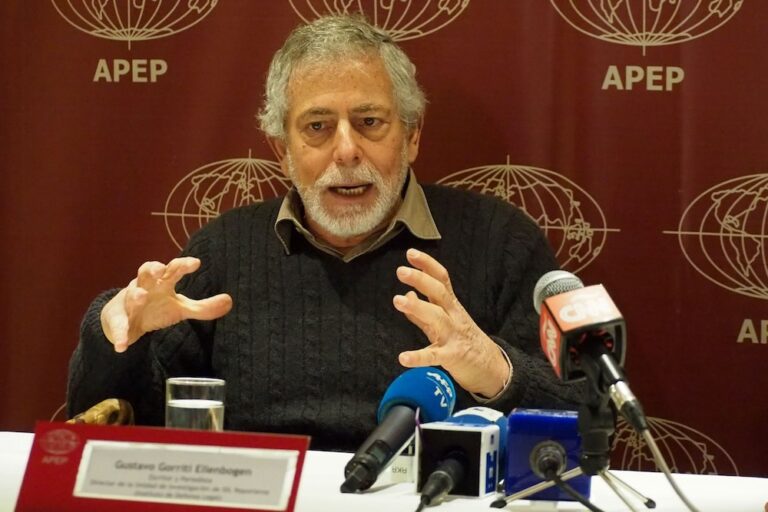On 25 January 2000, Rafael Rey – the vice-presidential candidate for the independent political movement Avancemos Rey – protested the fact that the heads of six television stations had openly refused to air the group’s political advertisements. Avancemos is led by the mayor of Huancavelica and presidential candidate, Federico Salas. Rey referred to conversations that […]
On 25 January 2000, Rafael Rey – the vice-presidential candidate for the independent political movement Avancemos Rey – protested the fact that the heads of six television stations had openly refused to air the group’s political advertisements. Avancemos is led by the mayor of Huancavelica and presidential candidate, Federico Salas.
Rey referred to conversations that he had had with Hernán Martínez, financial manager of Frecuencia Latina (Channel 2); Ernesto Schutz, president of the board of Panamericana Television (Canal 5); Marcelo Cúneo, of Andina de Television (ATV Canal 9); and Julio Vera, general manager of Global Television (Canal 13). As Rey explained, all of the aforementioned told him that “management had decided that they were not in a position to air commercials from political parties.” Moreover, he spoke with Roque Otárola – president of Television Nacional (Canal 7) until 25 January – and was informed the station had still not decided on what rate they should charge for political commercials; nor had they decided, in coordination with the National Electoral Office (Oficina Nacional de Procesos Electorales, ONPE), when they were going to air the commercials for free.
The Avancemos representative further explained that he was unable to obtain a response from América Television (Canal 4) managers José Enrique Crousillat, José Francisco Crousillat and financial manager Eugenio Tejero, as none of them had answered Rey’s messages. “We would like to make this public knowledge, although it is unlikely that the television news programmes will report on our protest. We have told our story to the public prosecutor’s office and now we are telling it to the press. This situation is not normal,” Rey affirmed.
As a final point, Rey added that the Avancemos case is different from that of Somos Perú, another group which was not permitted to place advertisements. “We do not have any debts and in some cases we have even offered to pay in advance,” he noted.


